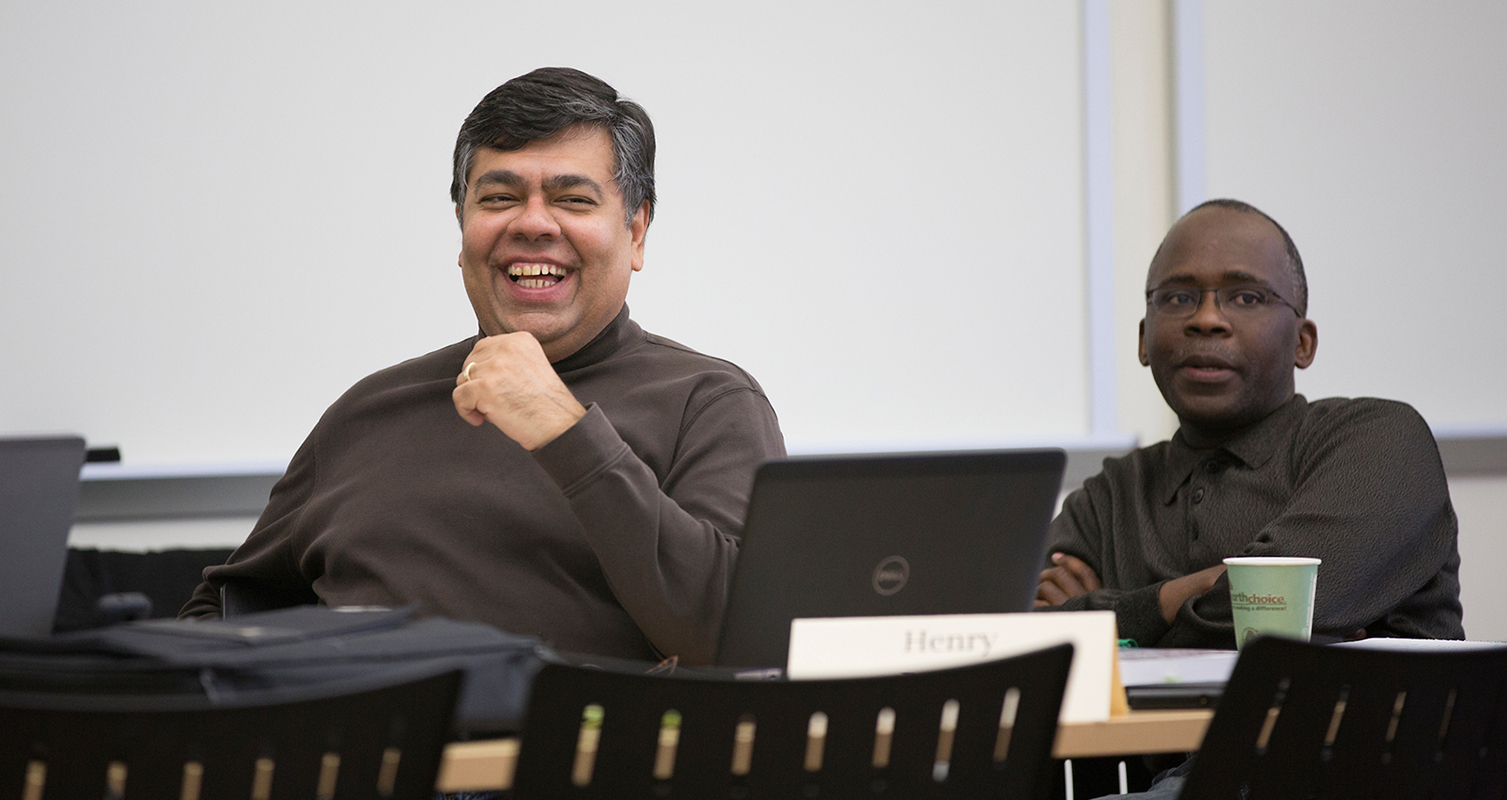DBA Spotlight: Henry Balani
July 06, 2017
Written by Dana Krems | photo by Craig Schreiner
The title of Henry Balani’s dissertation topic, “If Men Were Angels, No Government Would Be Necessary: Two essays on the effects of regulations on banking sector valuation,” loosely quotes James Madison in the Federalist Papers. Henry felt it was appropriate for his dissertation topic, as it relates to the challenges civil society faces in terms of the need for regulation.
With 25 years of practitioner experience in the field of economics and 15 years in the financial sector, Henry has an intense interest in money laundering and banking regulations. More specifically, he is concerned with understanding, identifying and preventing money laundering, as well as balancing regulatory insight with optimal banking effectiveness.
Henry had found that there was a lack of academic research related to the practical impact of regulation on the banking sector; the industry largely relied on anecdotal data. By augmenting his deep experience as a practitioner with the ability to perform rigorous academic research, he felt he could help bridge this gap, and contribute to both his field of practice and his company.
He explained, “My goal is to really look at my domain space with regard to money laundering and its impact on banking. My intent is to provide a more structured and deliberate framework for presenting my data. That was a big part of the impetus for doing a doctorate program.”
Henry focused on Doctorate of Business Administration programs, feeling the practitioner-focused terminal degree would give him the knowledge and tools he needed. After investigating programs throughout the nation, as well as some in the United Kingdom, he eventually chose the DBA program from UW-Whitewater College of Business and Economics.
Several factors contributed to this decision. A top criterion was being able to complete the program within three years. AACSB accreditation, an internationally-recognized standard of quality, was also a major criterion. An additional consideration was location. UW-Whitewater is a just a two-and-a-half-hour drive from his home near Chicago; whereas, he had also considered programs in California and Edinburgh, Scotland.
To maximize available study time during the monthly on-campus weekend sessions, Henry stayed in one of the UW-Whitewater dormitories. It had been almost 25 years since he had stayed on a college campus.
“I really enjoyed those weekends,” he said. “I think spending that extra time with my colleagues outside of the classroom helped build our camaraderie. It was really fun going back to school and staying in the dorms.”
There was a lot of hard work to be done, though. Henry found the curriculum itself was more challenging than previous studies he had undertaken.
“It’s significantly different from an MBA program,” he shared. He laughed and added, “’Significantly different’ is a loaded term, because you have to consider how you can statistically determine whether something is significant or not. It’s an example of how we end up thinking as doctoral candidates. It helps us be a lot more rigorous in terms of our approach to analysis, looking at concepts and challenging them.”
Reflecting on his experience, Henry expressed that it was positive overall. He stressed the impact on his thinking and how he looks at things.
He explained, “Coming from the practitioner world, I can understand some of the frustration towards the academic side. In the private sector, we’re always asking how something applies to the real world and what the financial benefit is. Now, having gone through a doctorate program, I understand the training and how it shapes the academic view. There’s definitely a balance to be struck.”
Planning to remain in practice, Henry hopes to help build connections between industry and academia by diving into practitioner-oriented research and publishing in business-focused journals. He intends to link rigorous academic research with real-world applications and financially relevant outcomes for the betterment of the banking industry.
This will not be an easy endeavor, given the complex relationship between government and banking, but Henry feels equipped for the challenges ahead.
He stated, “I have already had the opportunity to publish a paper on trade based money laundering in an academic journal. I continue to speak on the impact of regulation on banking, and recently was invited to speak at the United Nations in New York to policy makers and diplomats. The skills I have learned in the Doctorate of Business Administration program have been very valuable, and I look forward to researching publishing in this important area.”
UW-Whitewater’s AACSB-accredited Doctorate of Business Administration program is a professional doctorate that enables students to develop in-depth expertise in a specific business area. The DBA is a 60-credit program offered using a cohort model where students attend classes one weekend each month for two years, followed by a year of dissertation work.


